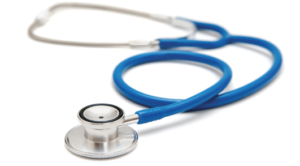Ghana government told to increase health sector budget to 15%
 BudgIT Ghana, a social advocacy organisation, has urged government to work at allocating at least 15 per cent of the national budget to the health sector to improve the country’s health care delivery system.
BudgIT Ghana, a social advocacy organisation, has urged government to work at allocating at least 15 per cent of the national budget to the health sector to improve the country’s health care delivery system.
It said the COVID-19 pandemic, having caused unprecedented damage, presented a unique opportunity for government to examine the health care system and strengthen it to achieve the universal health coverage.
Ghana, like many member states of the African Union, has over the years failed to fulfil the pledge to apportion at least 15 per cent of its annual budget to the health sector as declared in Abuja in 2001.
This year for instance, Ghana’s health sector received only seven percent of the country’s total budget.
The Deputy Country Lead of BudgIT Ghana, Mr Felix Ankrah, speaking at a health accountability forum attended by some residents of Cape Coast, observed that the quality, accessibility and affordability of health was a major concern to majority of citizens.
It was held under the organisation’s COVID-19 Transparency and Accountability in Africa (C-TAP) project aimed at boosting health sector accountability and ensuring vaccine equity in Ghana.
To attain an ideal health care system, he stressed the need for the country to increase investment in that sector.
Mr Ankrah emphasised the need for transparency and accountability in the health sector, indicating that it promoted affordability and accessibility to health care.
“If the people are healthy, it will advance the development of the country,” he noted.
Mr Khiddir Iddris, Research and Programme Lead, BudgIT Ghana, implored government to ensure that it implemented to the latter, the Agenda 111 policy which seeks to construct 111 ultra- modern health facilities across the country.
He was of the belief that the projects would help to bridge the geographical access to health care and make it affordable to citizens.
“The private sector on its part could partner government in building health facilities, thereby creating jobs, instituting affordable private health insurance scheme among others,” he said.
Mr Iddris appealed to Civil Society Organisations to intensify their watchdog role in advocating transparency and accountability in the management of the health care system.
The residents who participated in the forum lamented on how the COVID-19 pandemic had ravaged their lives and livelihoods, stressing that they were suffering.
They said unlike other parts of the country, residents in Cape Coast had still not received any government support to mitigate their sufferings.
A fisherman, Mr Kwamena Mensah said “fishermen were badly hit. life is extremely tough now and inflation is also biting very hard. To make matters worse, we don’t even have fuel for fishing.”
Madam Adwoa Attah, a trader also intimated that “they discriminated against us. we heard we were going to be supported with some funds, but we have not received anything yet. Our names were written but it never came.”
They, therefore, appealed to the government for a livelihood support against the pandemic to ease their plight.
Source: GNA
